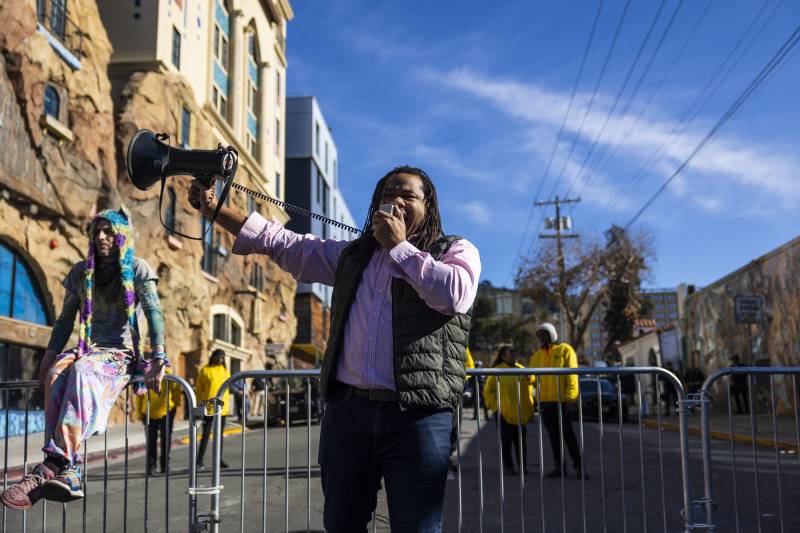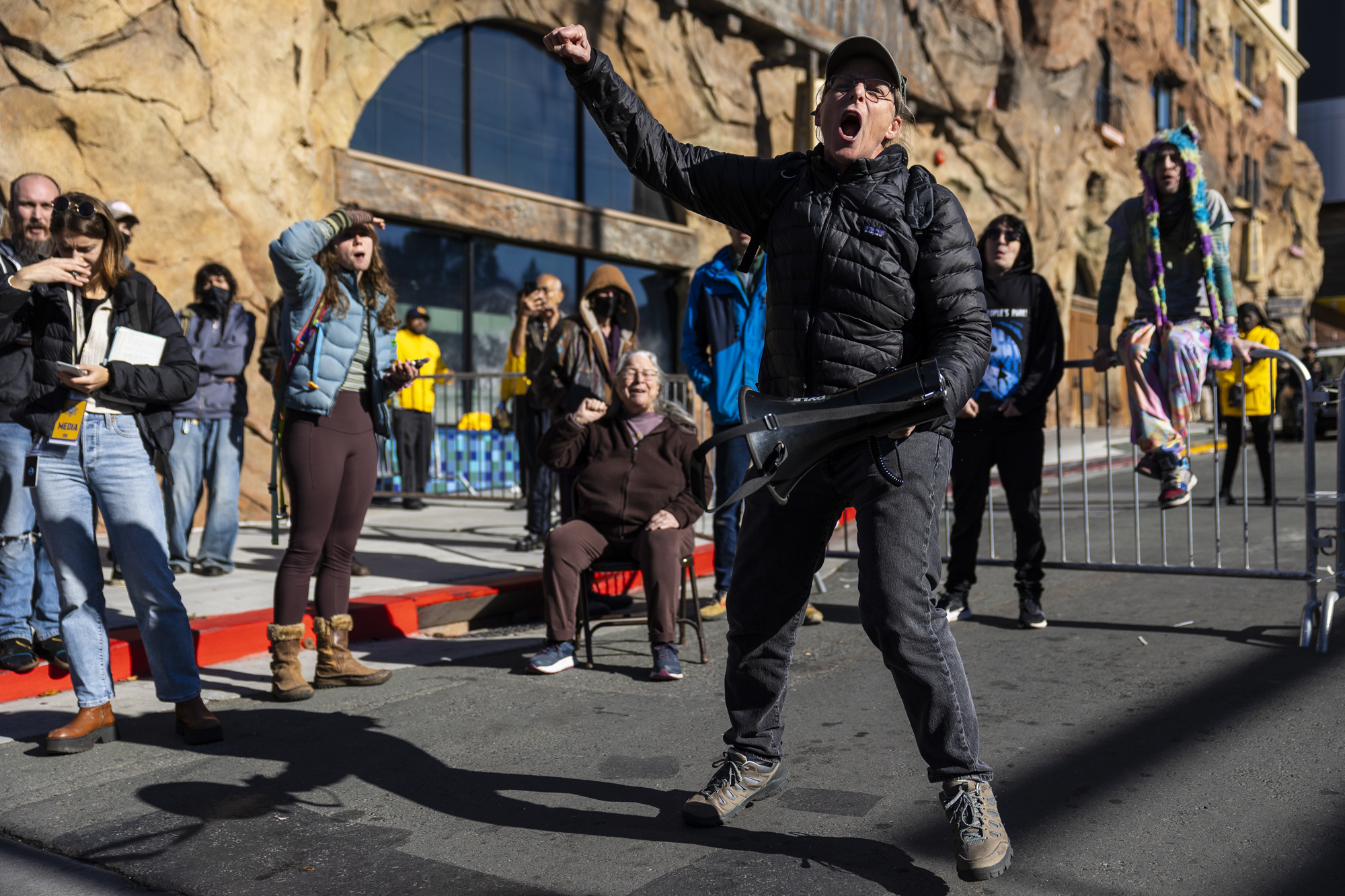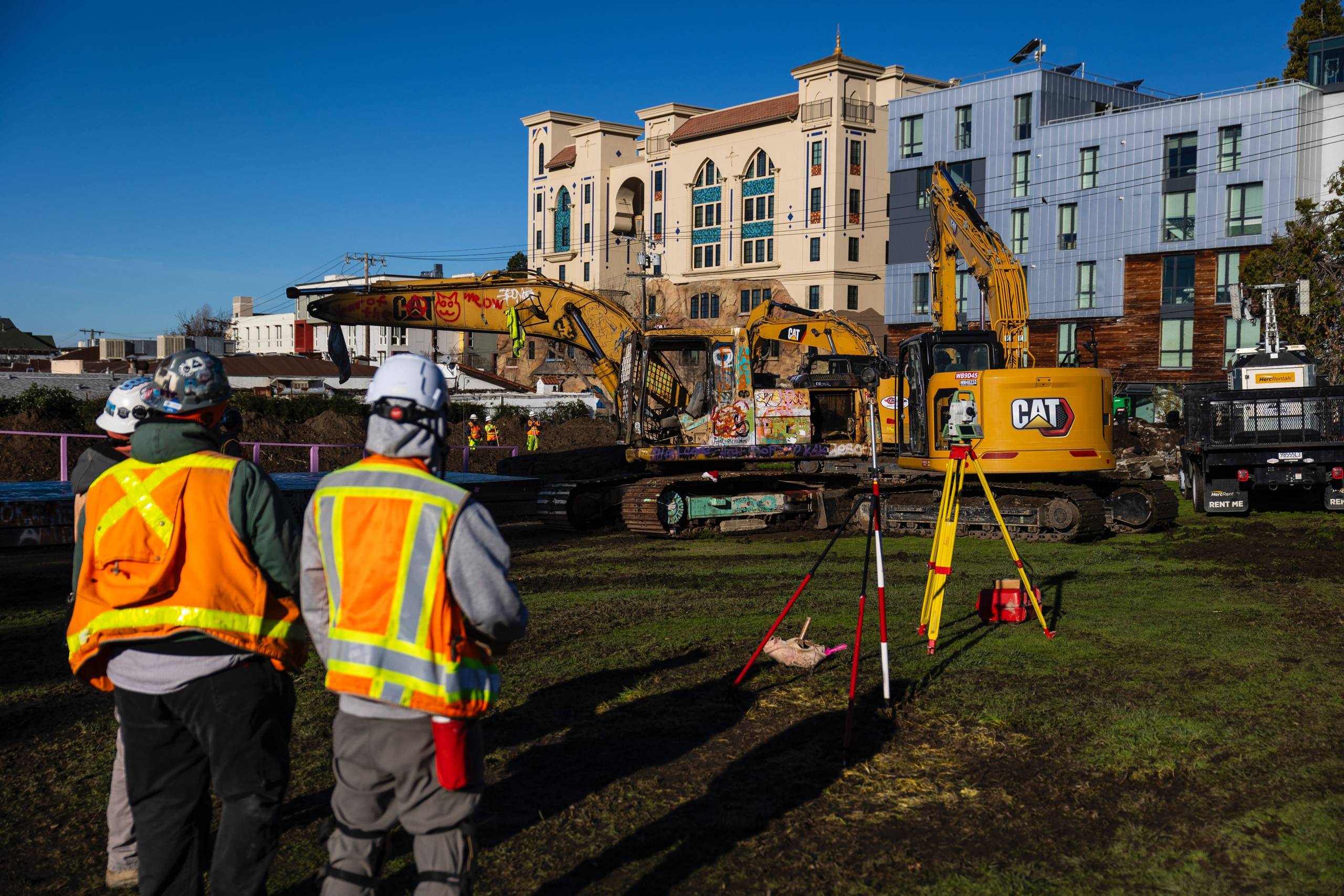Updated 7:55 p.m. Thursday
Three people were arrested late Thursday afternoon following a skirmish with police – the latest of nearly a dozen arrests made throughout the day as activists squared off with police at and around People’s Park in Berkeley.
Hundreds of officers arrived in the middle of the night to clear the site of its occupants in preparation for building student housing at the park. Officers at the time arrested seven people on charges of trespassing, with two cited on additional charges of failure to disperse, said Dan Mogulof, a spokesperson for UC Berkeley, which owns the property.
Throughout the day, construction crews began installing 160 double-stacked shipping containers around the park’s perimeters, as demonstrators gathered at the intersection of Telegraph and Haste avenues outside the park.

While “very peaceful” throughout the day, Berkeley police Officer Jessica Perry said one other person was arrested around 1:10 p.m. on charges of theft and resisting arrest after they moved a barricade, bringing the total number of arrests for the day to 11, according to UC Berkeley and Berkeley police.
Up until the skirmish in the late afternoon, the demonstrators had been playing music and eating donated pizza and cookies. Some were making or holding signs reading, “The people are the park,” and “Our people, our park” as several dozen officers in riot gear faced them from behind a barricade.
Berkeley police said protesters were attempting to remove barricades at the perimeter of the park, and an “altercation occurred” with officers at 4:40 p.m. Two women and one man were arrested on charges including resisting arrest and battery, according to police.
“What else can I do besides bring food for people?” said Alejandro Garcia, 31, pizza boxes in tow. “So they can spend time here and at least try to put some pressure, at least congregate, at least show we aren’t happy about this.”
Hundreds of officers were still on scene as of late Thursday afternoon. Mogulof said the officers would remain there until construction of the barricade is complete, after which security guards would patrol the area. He couldn’t give an exact estimate for when that would happen.
“Work is proceeding faster than expected,” he said. “We have some reasonable optimism it will be sooner than our original projection [of three-to-four days].”



